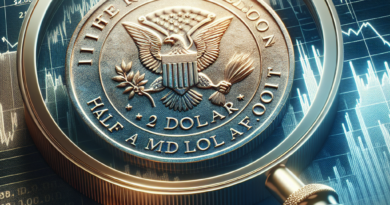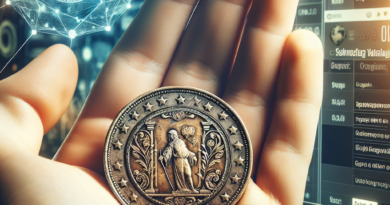This rare coin was sold for more than 9 million euros
Many rare coins are worth a fortune.
Today we analyze one in particular, which was sold for over 9 million euros (10,016,875 dollars, to be exact).
It is an ancient, extremely rare coin that we would be unlikely to find in our wallet by chance.
This is a 1 US dollar coin known in the world of numismatics as Flowing Hair, dating back to 1794.
This rare coin was sold for over 9 million euros.
The rare 1 dollar coin 1794 Flowing Hair is one of America's greatest numismatic monuments and quite possibly the first silver dollar ever created in the United States.
To date we are aware of only 135 examples of Flowing Hair dollars in silver.
And among these, the one sold for over $10 million is the only one that shows any reflectivity.
In fact, when the coin is removed from its box, the reliefs return a surprising reflection and a notable contrast with the frostings.
The curls of the represented figure, Liberty, show incredible definition, even in their maximum relief above the ear, as do the eagle feathers on the other side.
These characteristics give the coin the status of "unique specimen".
Even the delicate details of the bark of the wreath's branches stand out to the naked eye.
The stars are missing their radial centers because the press of the time could not fully mint these large one-dollar coins.
Diagnostic tests revealed a tiny lump in the lowest curl of Liberty's hair, just above the 1 in the date.
The bust line is broken above the date, as Liberty's main head pin provided too much depth to fully highlight a defined edge when the model was prepared.
Before the passage of the Coinage Act of 1792 during the presidency of George Washington, which established the United States Mint, regulated the issuance of coinage, and proclaimed the silver dollar as the basic unit of all other securities, including the colonies (later states) circulated different coins.
Some were produced by individual colonies and by the states themselves such as Massachusetts, Connecticut and New Jersey, while others by foreign countries.
Foreign coins, in fact, were accepted as legal tender in the United States until the mid-1800s.
The arrival of the silver dollar and the start of domestic production are considered of national historic importance in the United States.
The coins to be produced would not only be metallic instruments for trade, but would also represent the values of the Founding Fathers.




